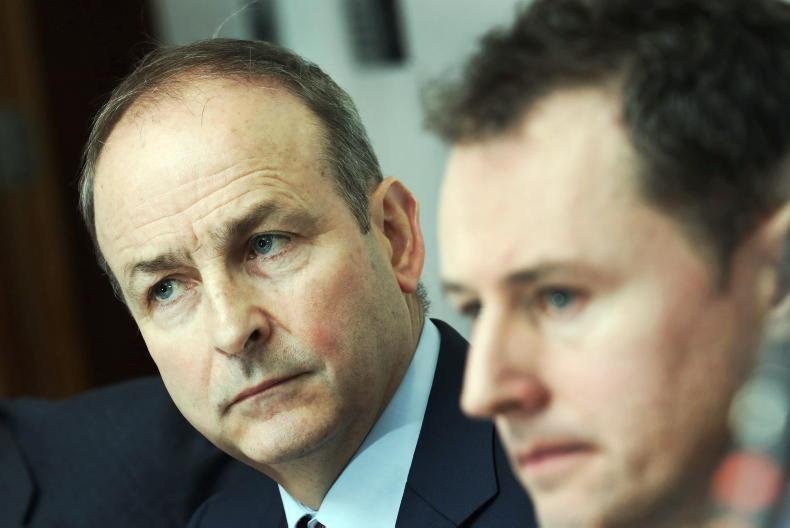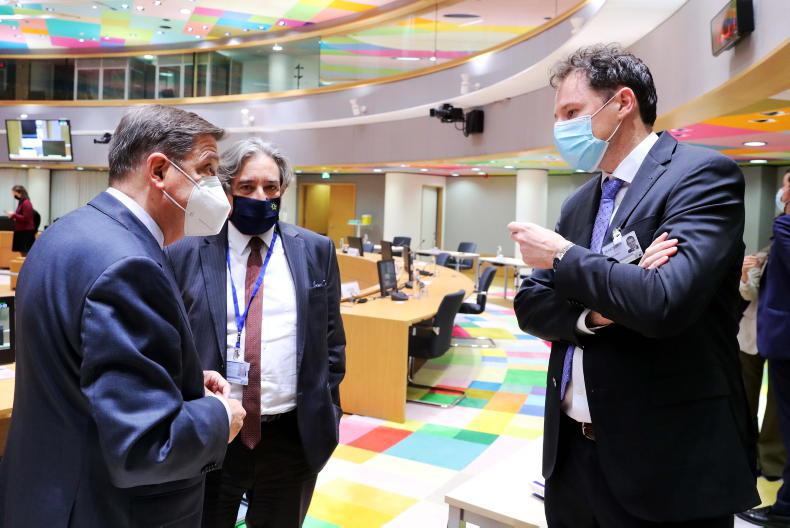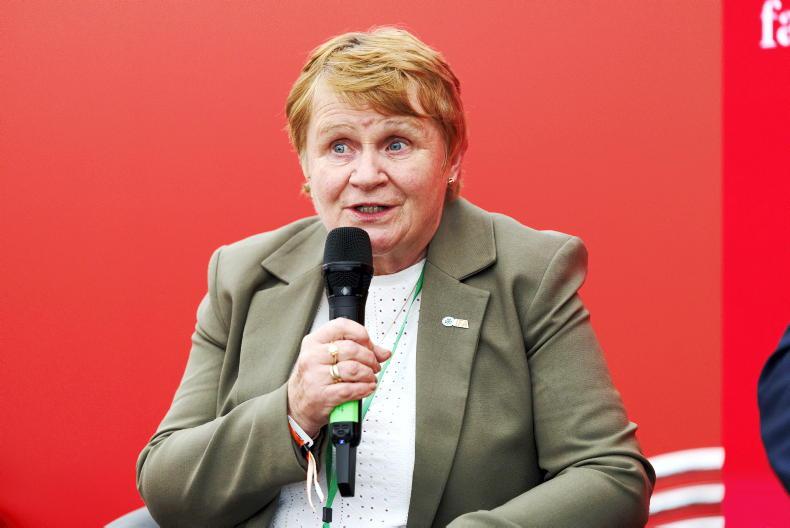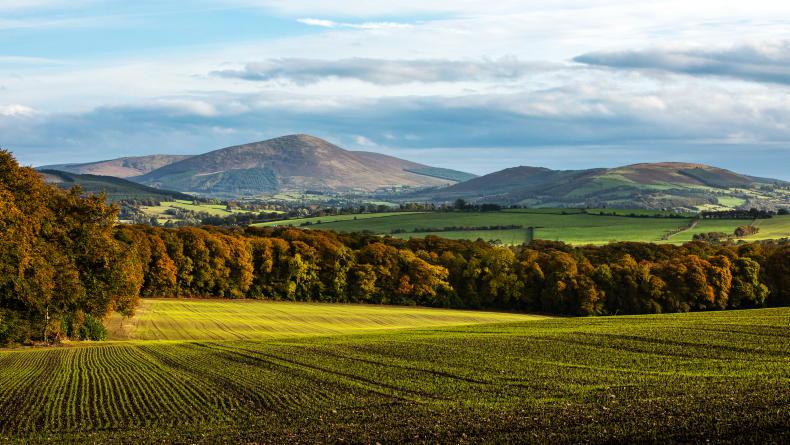The decision last week by European institutions to suspend negotiations on reforming the Common Agricultural Policy (CAP) was a political one. Delaying the formal agreement for a four-week period, until the end of June, is designed to take the political heat out of the proposed policy measures.
As Barry Cassidy reports, agreement was in fact reached on most of the substantive policy issues – refining legal text and a debate around when various measures would be implemented appearing to be the main roadblocks. Had the political will existed for a deal, these issues could have been overcome.

As well as exposing the extent to which the optics are being carefully crafted, last week’s negotiations showed the degree to which food production is now viewed within Brussels as a by-product of CAP. Once its core function, the role of CAP in protecting farm incomes, while delivering high-quality food at affordable prices to EU consumers, is no longer seen as a priority by those at the negotiating table. It has been replaced by an environmental agenda driven by the EU Farm to Fork strategy.
Few can legitimately argue with the EU’s increased environmental ambition under the Green Deal. In a wider context, it has matched this ambition with the introduction of new supports. A €17.5bn Just Transition fund and a €750bn recovery and resilience fund are in place to support sectors in their green transition.
Rather than leave a vacuum that pits farmer against farmer, the minister needs to unite farmers behind his vision
The exception is agriculture and food production. Instead of introducing new funding streams to aid the sector in its green transition, policymakers secured the political support necessary to simply raid the CAP budget – redirecting income supports paid directly to farmers for food production into schemes designed to deliver the enhanced environmental measures outlined in Farm to Fork.
It has been a major failure by the farm lobby to allow EU politicians and policymakers adopt such a position without at least forcing an honest conversation with consumers – one highlighting the need for a significant increase in food prices or a growing reliance on non-EU imports. Politicians have been allowed to simply ignore the fact that, in the absence of a significant increase in prices, it is not possible for EU farmers to maintain food production and deliver enhanced environmental measures from within a smaller CAP budget.
Flexibility required
As the largest food exporter in the northern hemisphere, few other member states are as exposed to a CAP outcome that undermines food production than Ireland. It is therefore critical that Minister for Agriculture Charlie McConalogue moves quickly to present the Government’s response. Ensuring maximum flexibility at EU level in the implementation of schemes is an important first step – but more is needed.
The direction of travel within Brussels over the past 18 months has been clear. Therefore it should not come as a surprise to the Department of Agriculture that along with CAP supports, significant intervention at national level is going to be required to protect the food production capacity of the sector while recognising the environmental dividend from the improved management of marginal land.
Rather than simply leave a vacuum in the coming weeks that pits farmer against farmer, the minister needs to unite farmers behind his vision for a new support structure. The first step in achieving this is to ensure the debate is informed with the facts through modelling the impact of the various CAP measures, not just on individual farm payments but the economic viability of the various sectors. It is this information that should inform the discussion around targeted payments under Pillar 2 and the need for Exchequer support to underpin the country’s largest indigenous sector.
Farmer input
Farm organisations should insist that the minister gives farmers visibility as to the level of support planned by Government before talks in Brussels resume at the end of the month.

An Taoiseach Micheál Martin with Minister for Agriculture Charlie McConalogue.
Ironically, to deliver this, the minister will need the support of farmers. When it comes to negotiating around the Cabinet table, the level to which his voice will be heard and listened to will reflect the extent to which the voice of the farming community is strong and united in its policy demands.
As Phelim O’Neill details this week, a fragmented voice without clear policy demands has seen farmers fall off the radar in Dublin and Brussels – to such an extent that at a time when there has never been more money in the EU budget, farming in Ireland has failed to ring-fence any additional funds to support it in its green transition. More worryingly, the Government’s national recovery and resilience plan shows little evidence that the €1bn Brexit Adjustment Reserve will be targeted at addressing the serious income challenges on the horizon for our beef and sheepmeat sectors.
The decision last week by European institutions to suspend negotiations on reforming the Common Agricultural Policy (CAP) was a political one. Delaying the formal agreement for a four-week period, until the end of June, is designed to take the political heat out of the proposed policy measures.
As Barry Cassidy reports, agreement was in fact reached on most of the substantive policy issues – refining legal text and a debate around when various measures would be implemented appearing to be the main roadblocks. Had the political will existed for a deal, these issues could have been overcome.

As well as exposing the extent to which the optics are being carefully crafted, last week’s negotiations showed the degree to which food production is now viewed within Brussels as a by-product of CAP. Once its core function, the role of CAP in protecting farm incomes, while delivering high-quality food at affordable prices to EU consumers, is no longer seen as a priority by those at the negotiating table. It has been replaced by an environmental agenda driven by the EU Farm to Fork strategy.
Few can legitimately argue with the EU’s increased environmental ambition under the Green Deal. In a wider context, it has matched this ambition with the introduction of new supports. A €17.5bn Just Transition fund and a €750bn recovery and resilience fund are in place to support sectors in their green transition.
Rather than leave a vacuum that pits farmer against farmer, the minister needs to unite farmers behind his vision
The exception is agriculture and food production. Instead of introducing new funding streams to aid the sector in its green transition, policymakers secured the political support necessary to simply raid the CAP budget – redirecting income supports paid directly to farmers for food production into schemes designed to deliver the enhanced environmental measures outlined in Farm to Fork.
It has been a major failure by the farm lobby to allow EU politicians and policymakers adopt such a position without at least forcing an honest conversation with consumers – one highlighting the need for a significant increase in food prices or a growing reliance on non-EU imports. Politicians have been allowed to simply ignore the fact that, in the absence of a significant increase in prices, it is not possible for EU farmers to maintain food production and deliver enhanced environmental measures from within a smaller CAP budget.
Flexibility required
As the largest food exporter in the northern hemisphere, few other member states are as exposed to a CAP outcome that undermines food production than Ireland. It is therefore critical that Minister for Agriculture Charlie McConalogue moves quickly to present the Government’s response. Ensuring maximum flexibility at EU level in the implementation of schemes is an important first step – but more is needed.
The direction of travel within Brussels over the past 18 months has been clear. Therefore it should not come as a surprise to the Department of Agriculture that along with CAP supports, significant intervention at national level is going to be required to protect the food production capacity of the sector while recognising the environmental dividend from the improved management of marginal land.
Rather than simply leave a vacuum in the coming weeks that pits farmer against farmer, the minister needs to unite farmers behind his vision for a new support structure. The first step in achieving this is to ensure the debate is informed with the facts through modelling the impact of the various CAP measures, not just on individual farm payments but the economic viability of the various sectors. It is this information that should inform the discussion around targeted payments under Pillar 2 and the need for Exchequer support to underpin the country’s largest indigenous sector.
Farmer input
Farm organisations should insist that the minister gives farmers visibility as to the level of support planned by Government before talks in Brussels resume at the end of the month.

An Taoiseach Micheál Martin with Minister for Agriculture Charlie McConalogue.
Ironically, to deliver this, the minister will need the support of farmers. When it comes to negotiating around the Cabinet table, the level to which his voice will be heard and listened to will reflect the extent to which the voice of the farming community is strong and united in its policy demands.
As Phelim O’Neill details this week, a fragmented voice without clear policy demands has seen farmers fall off the radar in Dublin and Brussels – to such an extent that at a time when there has never been more money in the EU budget, farming in Ireland has failed to ring-fence any additional funds to support it in its green transition. More worryingly, the Government’s national recovery and resilience plan shows little evidence that the €1bn Brexit Adjustment Reserve will be targeted at addressing the serious income challenges on the horizon for our beef and sheepmeat sectors.












SHARING OPTIONS